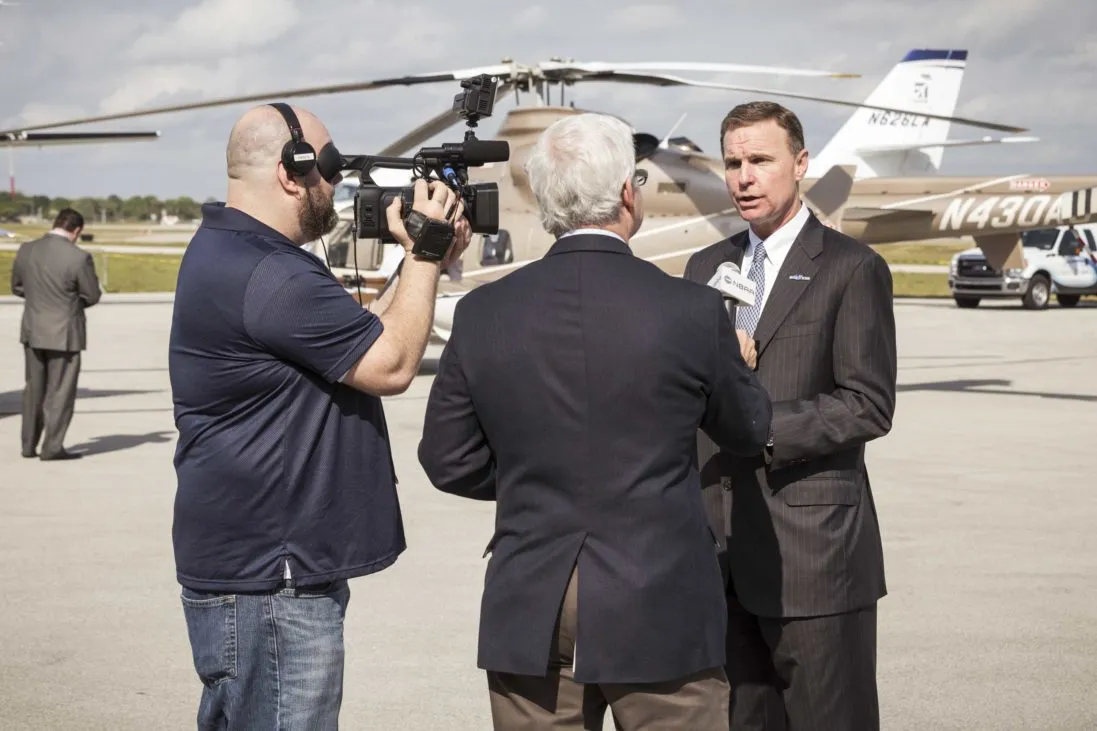NBAA-BACE: What Walt knew about recessions

Lots of sunshine, a few storms.
Not just a summary of the weather at the NBAA-BACE event in Orlando, Florida last week. It also captures views on the short-term prospects for business aviation.
Which brings us to the R word for recession. Is one inevitable? Has it started already? And what can the industry do to mitigate its impact? We tried to build a snapshot of what the future might hold by canvassing industry views.
“It’s already here – it’s happening now,” is the view of Michael Amalfitano, president and CEO, Embraer Executive Jets. “But it’s not so much are you in it or out of it. The key questions are: ‘How severe will it be and what will be the industry impact?’”, he tells CJI.
The big driver, for Amalfitano, is inflation – things are costing more. “So, whether it’s the gas [fuel] you put in your car or some part of the build of materials that goes into an aircraft – it will have to be passed on, at some point, in all aspects.”
Embraer’s long-term focus on lean enterprise efficiency, whether on the Porsche or Toyota approach, enables the business to face the future with confidence, says Amalfitano. “We have learned from those who have excellent experience in lean philosophies to take waste out of the system. When that happens, you become more efficient even when you have a recessionary climate looming on the horizon.” But so far, no buyers have dropped or delayed aircraft purchases on fears about world markets, he adds.
Éric Trappier, CEO, Dassault Aviation worries about the economic and humanitarian impact of Russia’s invasion of Ukraine. Energy supplies and pricing, inflation and interest rates and the continuing effects of the global pandemic – particularly on the supply chain from China – were further concerns. “Do we expect an economic crisis or recession in the coming weeks? Yes, there is a risk,” he tells CJI.
“We are not sure. And those who know are not so few that 50% are right.” But with robust sales of business jets and the continuing sale of Rafale fighter jets (with an order for a further 42 expected next year), the OEM’s profitability is secured for at least the next 10 years, according to Trappier.
Honda Aircraft Company also highlights the contribution of “efficient, more capable and more automated product” in helping the industry navigate recessionary pressures. After the launch of the HondaJet Elite II – said to be the fastest, highest, and farthest flying aircraft in its class – Pete Kriegler, vice president, Sales tells CJI: “There are certain economic indicators that we are all watching – the thread is there for a global recession …”. But even in economic downturns, demand for private aviation remains resilient, he adds.
His colleague Amod Kelkar, head of Commercial Business Unit, vice president Customer Service noted recession could even boost some categories. “If there is a recession, the tendency to fly on charter or fractional ownership will be an even more economical justification. We feel in our space, recession may not have the [same] trajectory, but it will certainly not flatten up. We expect growth.”
Since the NBAA-BACE event was staged almost within camera shot of Disney Studios, let’s leave the last word to the great man himself. Walt had a very particular, and characteristically American, view about economic down-turns. “I have heard there is going to be a recession. I have decided not to participate.”

Above: Ed Bolen, president and CEO, NBAA (right) on duty at the NBAA-BACE static demonstration last week. Top: Walt Disney: American animator, film producer, entrepreneur and recession pundit.
Subscribe to our free newsletter
For more opinions from Corporate Jet Investor, subscribe to our One Minute Week newsletter.








